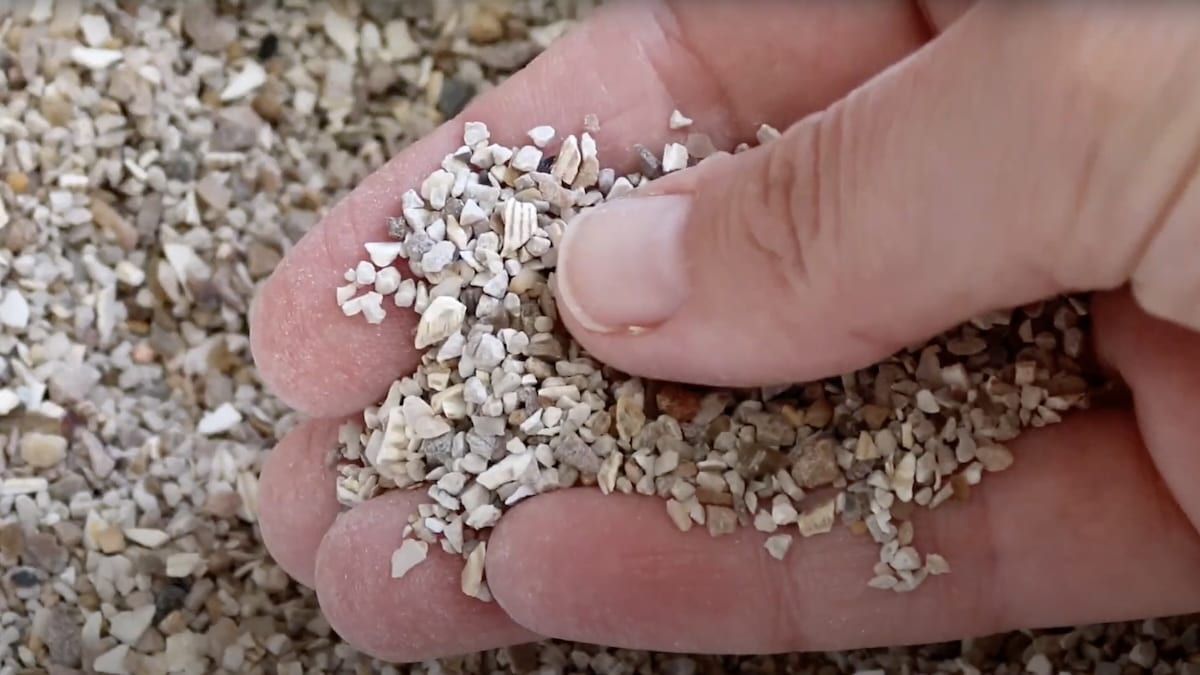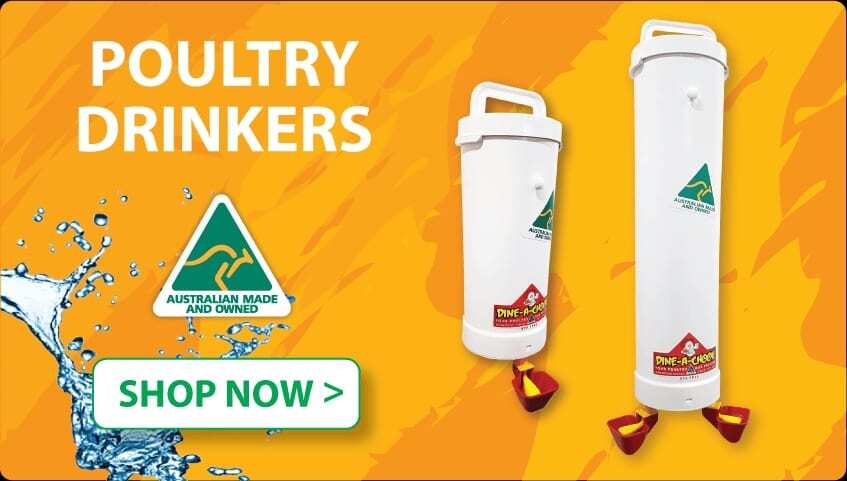How to Feed Eggshells to Chickens for Stronger Eggs
How to Feed Eggshells to Chickens for Stronger Eggs
If you're wondering whether you can feed eggshells back to your chickens, the short answer is yes. They're an easy and free way to provide your chooks with extra calcium.
Laying hens need lots of calcium to keep their eggs strong and their bodies healthy. Feeding them eggshells not only helps them produce stronger eggs but also reduces waste by recycling something your chickens already created.
Rinse, bake, crush, and feed eggshells separately (not mixed with feed) alongside shell grit to give laying hens essential calcium without risking forming bad habits like egg-eating or calcium toxicity.
If you’re serious about keeping your chooks in top condition, make sure they always have access to fresh, clean water. A good chicken drinker makes this easy. Check out Dine-A-Chook’s chicken drinkers to make life simpler for you and healthier for your birds.
Key Takeaways
- Eggshells are a free calcium boost to help laying hens to produce strong eggs.
- Rinse, bake and crush eggshells thoroughly to keep them safe for chickens.
- Don’t mix crushed eggshells with feed to avoid excess calcium in their diet.
- Offer shell grit or oyster grit alongside eggshells for balanced calcium intake.
- Some people are worried about encouraging egg-eating if feeding egg shell, but properly crushed eggshells won’t encourage bad habits.
Learn how to feed your chickens effectively with waste-reducing feeders.
Why Feed Eggshells to Chickens?
Laying hens work hard to lay eggs, and they need plenty of calcium to do it.
Without enough calcium, you’ll notice weak, soft, or brittle eggshells, and your chickens might even start pulling calcium from their own bones to make up for the lack.
This can lead to health problems over time.
Eggshells are an easy, natural solution. Instead of tossing them in the bin, you can recycle them to give your hens a top-up of calcium.
Quality layer feed has the optimal amount of dietary calcium, but feeding egg shells is still a good way to boost their diet. And especially when free-ranging, if your hens don’t free-range across a large area where they can find natural sources of calcium, feeding eggshells or other calcium source is an even more important part of their diet.
For best results, offer eggshells alongside other calcium supplements like shell grit or oyster grit. The combination of small particles (like eggshells) and large particles (like grit) ensures your hens get everything they need to lay strong eggs while maintaining healthy bones.
How to Prepare Eggshells for Chickens
Feeding eggshells is simple, but they need to be cleaned and crushed to make them safe and effective.
Here’s how to do it step by step:
1. Rinse the Shells
Rinse eggshells under running water to remove any leftover egg residue. This keeps the shells clean and reduces the risk of attracting pests or bacteria.
2. Dry or bake the Shells (Optional)
You can air-dry the shells in a clean spot or bake them in a low oven for extra safety. Baking isn’t usually necessary for eggshells from your own flock, but it can be helpful if you’re worried about disease or parasites. Bakin the shells also makes it a bit easier to crush them.
3. Crush the Shells
Break the shells into small pieces about the size of a fingernail or smaller. This stops your hens from recognising them as eggs, which can help prevent egg-eating behaviour.
How to Feed Eggshells Safely
1. Use a Separate Dish or Sprinkle Them on the Ground
Always feed crushed eggshells in a separate container or dish, away from your chickens’ regular feed. You can also throw the crushed eggshells on the ground around your chicken run for your hens to peck at them.
This allows the hens to choose how much calcium they need. Chickens are usually good at self-regulating their calcium intake.
2. Keep it Clean
Replace the eggshells if they get wet or dirty. Damp shells can grow bacteria, which isn’t good for your flock.
3. Don’t Mix with Feed
Mixing eggshells into regular feed might seem like a good idea, but it can lead to overfeeding calcium.
This is especially dangerous for non-laying chickens, like roosters, who don’t need as much calcium and can develop health problems if they eat too much.
Extra Calcium Sources for Your Flock
While eggshells are a great option, they’re not the only source of calcium for your chooks.
Here are some other ways to make sure your hens are getting the calcium they need:
- Shell Grit or Oyster Grit: These are essential large-particle calcium sources and should always be available alongside eggshells.
- Garden Snails: If you find snails in your garden, they’re a natural treat packed with calcium.
- Mealworms and Insects: Mealworms and other insects are an excellent source of calcium and protein.
- Commercial Grit Mixes: Many grit products include calcium along with charcoal and grit particles to aid digestion.

A closeup of crushed oyster shell grit.
Busting Myths About Eggshells
Myth 1: Feeding eggshells makes hens eat their own eggs.
If the eggshells are crushed properly, your chickens won’t associate them with fresh eggs. Egg-eating is more often caused by boredom or nutritional deficiencies, not feeding eggshells.
Myth 2: You must bake eggshells before feeding them.
Baking is optional. Fresh, clean, and crushed eggshells are perfectly safe for your hens, especially if the eggs are from your own flock.
Myth 3: Eggshells alone are enough for calcium
While eggshells are a good source of calcium, they shouldn’t be the only supplement. Laying hens benefit from both small-particle calcium (like eggshells) and large-particle calcium (like shell grit or oyster grit). The larger particles take longer to break down, providing a steady calcium release that improves eggshell quality and supports bone health.
Myth 4: You can’t feed eggshells to mixed flocks
You can feed eggshells even if you have roosters or non-laying hens, as long as you offer them separately. Chickens naturally regulate their calcium intake, so non-layers will generally avoid eating eggshells or grit. However, mixing them into feed increases the risk of overconsumption for birds that don’t need extra calcium.
Myth 5: Feeding eggshells makes eggs taste different
Feeding crushed eggshells to your chooks won’t affect the flavour of their eggs. Egg taste is more influenced by their overall diet, including access to fresh greens, grains, and quality layer feed.
Why Laying Hens Need Both Grit and Eggshells
Eggshells and shell grit work together to give your hens all the calcium they need.
Each type of supplement plays a specific role in their diet:
- Eggshells: These small calcium particles are quickly absorbed, giving your hens an instant boost when their bodies need it most.
- Shell Grit or Oyster Grit: These larger particles take longer to digest, providing a slow release of calcium that helps hens form strong eggshells.
By offering both, you ensure your hens get the right mix of calcium at the right time, keeping them healthy and laying consistently strong eggs.
Can You Feed Eggshells to Dogs and Other Pets?
Yes, you can feed eggshells to dogs and some other pets, but it needs to be done carefully.
Eggshells are rich in calcium, which can benefit dogs, especially those on homemade diets that lack enough calcium. To make them safe, rinse and bake the shells to kill bacteria, then grind them into a fine powder. Sprinkle the powder over your dog’s food in small amounts.
Avoid feeding large pieces of eggshells to dogs, cats, or other pets, as sharp edges could cause discomfort or digestive issues. Also, consult your vet before adding eggshell powder to your pet’s diet, especially if they’re already on a balanced commercial food or have specific health needs.
Cats or other small animals generally don’t need extra calcium from eggshells, so it’s best to stick to using them for your flock or compost.
Keep Your Flock Strong with Smart Calcium Supplements
Feeding eggshells to your chickens is an easy and cost-free way to support their health and productivity. By preparing and feeding them correctly, you can reduce waste and keep your hens laying strong, healthy eggs.
Remember, balance is key: combine eggshells with shell grit and always provide fresh, clean water to keep your flock in top condition.
Explore the Dine-A-Chook drinkers to simplify your setup and ensure your chickens are thriving.
Need more tips?





